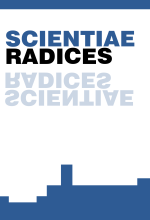Phytoremediation is a promising sustainable approach for the remediation of soil contaminated with inorganic and organic pollutants. In the lands affected by petroleum-derived compounds, their massive toxicity towards the plants, however, hinders the efficacy of the phytoremediation process. Hence, adopting a green approach to enhance phytoremediation is highly recommended and desirable. Here, sugarcane bagasse (SCB) was used as a bulking agent enhancing the hyperaccumulation of heavy metals chromium (Cr) and nickel (Ni) by sunflower plants from 0.5%, 2.5%, and 5% oil-contaminated soil. Accumulation of Cr and Ni was observed higher in roots than shoots. The bioconcentration factor (BCF) of Cr and Ni was higher in soil amended with SCB than that without amended. The highest rate of Ni and Cr uptake was also noticed in all treatments amended with the bulking agent except in the case of 0.5% oil-contaminated soil without SCB. Overall, the phytoremediation of oil-contaminated soil is most effective when it is amended with SCB as a bulking agent which provides water and air well to plants, improving plant growth and then increasing phytoaccumulation of heavy metals.
phytoaccumulation, chromium, nickel, spent engine oil, contaminated soil, sugarcane bagasse, bulking agent
